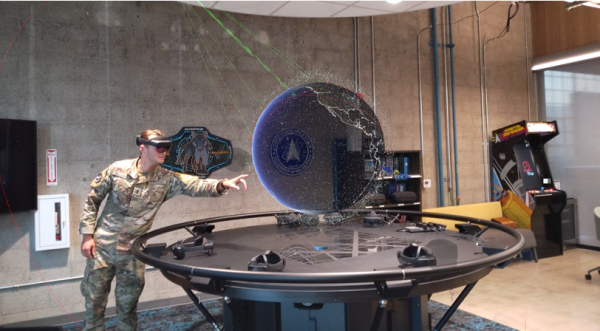Space Force ‘days away’ from signing first commercial strategy

The Space Force is on the cusp of releasing its first-ever strategy that outlines exactly how the service plans to buy from and partner with the commercial space sector for its missions.
“We are days away, hopefully, from signing a commercial strategy,” Lt. Gen. DeAnna Burt, deputy chief of space operations for operations, cyber and nuclear, said during a Mitchell Institute webinar Friday. The strategy will offer guidance for how commercial technology can be integrated into the Space Force and which capabilities industry can provide as a service.
“Working with commercial [industry] to build a satellite or a rocket or a ‘thing’ is how we’ve historically worked. How do we start to think about buying things as a service? I don’t have to own a satellite, I don’t have to own those things. I just write a contract and buy a certain level of service from you,” she said.
The commercial strategy will be a revised version of an early draft sent to Chief of Space Operations Gen. Chance Saltzman. After reading the draft — which he described as full of “aspirational” discussions — Saltzman asked for the document to be fleshed out with more concrete definitions, examples and guidance for industry.
“I didn’t think it provided the necessary specificity that would really help industry give us what we needed,” Saltzman said in October at an event hosted by the Center for a New American Security. “It wasn’t about a content thing, it was about — let’s provide some more specificity, some tangible guidance that I think industry is looking for from us.”
The Space Force has looked to better leverage the burgeoning commercial space sector over the past year, particularly when it comes to acquiring technologically mature capabilities and services. In 2023, the military branch opened a Commercial Space Office in order to connect with industry and understand how to integrate their capabilities into Space Force operations.
Burt noted that a growing space industry means the Pentagon could buy a range of capabilities as services from the commercial sector — including satellite communications, intelligence, surveillance, reconnaissance, and alternative positioning, navigation and timing.
“The space domain has not necessarily had a very large base in the past because of the cost of entry, and typically it was primarily the government running those capabilities,” she said. “Now that you see entrepreneurs and commercial [industry] going into the domain now and more nations are also spacefaring nations, you’re starting to see that industrial base start to build.”






